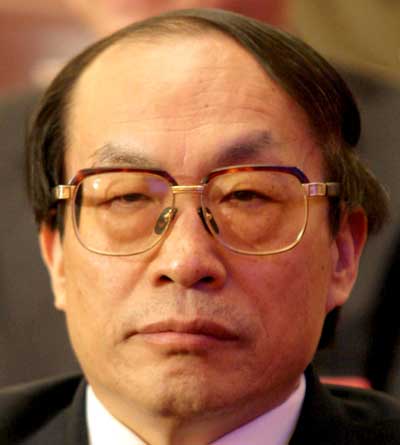Graft fight stepped up; ex-rail chief sentenced
Updated: 2013-07-09 01:32
By CAO YIN (China Daily)
|
|||||||||||
The crackdown on corruption has been tightened, especially among high-level officials, experts said after a former minister was sentenced on Monday.
Beijing No 2 Intermediate People's Court handed down the death penalty with a two-year reprieve to Liu Zhijun, former railways minister, for bribery and abuse of power.
 |
|
Liu Zhijun, former railways minister |
"It shows authorities are increasing their efforts to crack down on corruption. It was previously very rare to see so many officials at this level investigated in such a short period of time," said Yang Xiaojun, a law professor at the Chinese Academy of Governance.
Yang said anti-corruption efforts are clearly being strengthened, especially after the Party's 18th National Congress in November, adding that corrupt officials will continue to be punished heavily under the campaign.
Since November, eight minister-level officials have been under disciplinary investigation, "which reflects the top leadership's determination to fight graft", Yang said.
In January, Party chief Xi Jinping said it was just as important to go after the "flies", or low-level officials, as it was to handle the "tigers", or high-ranking officials, in the battle against corruption.
Yang said the recent cases show there has clearly been a crackdown against the "tigers", and he believes the efforts will be stepped up.
Zhu Lijia, another professor with the academy, said fighting corruption is clearly high on the new leadership's agenda.
Handling high-level officials who are corrupt is important because they wield considerable power and their actions have a widespread negative effect, Zhu said.
But he said it is equally important to fight corruption among lower-level officials.
Lin Zhe, a professor at the Party School of the Communist Party of China Central Committee, said officials must be strictly punished if they are corrupt, no matter how powerful they are and what level they are at.
Recent measures taken by disciplinary authorities to prevent corruption include requiring officials to return VIP cards they receive as gifts.
Lin said these measures are a good start to intensified internal supervision but she called for the anti-graft mechanism to be improved.
Ren Jianming, director of the Clean Governance Research and Education Center at Beihang University in Beijing, said a new approach is needed to combat corruption.
He suggests authorities increase economic punishments, taking Singapore as an example.
"In that country, most officials are afraid to be corrupt because if they are found to be involved in graft, all of their illicit property will be confiscated and they must pay extra money as a punishment."
Related Stories
Former official sentenced to life imprisonment for graft 2013-05-04 08:07
Audit office criticizes China Mobile's anti-graft system 2013-05-11 02:25
Anti-graft drive dampens spirits 2013-05-03 09:01
Former deputy governor sentenced for graft 2013-05-03 13:21
Today's Top News
Air crash victims'parents leave for US
Premier Li lauds Guangxi's potential
Mining firm confirmed to have polluted S China river
Legislation urged to guarantee nuclear security
Ex-rail chief sentenced
Terror law called for after attack
Air crash victims' parents leave for US
Subsidies aid poor families
Hot Topics
Lunar probe , China growth forecasts, Emission rules get tougher, China seen through 'colored lens', International board,
Editor's Picks

|

|

|

|

|

|





